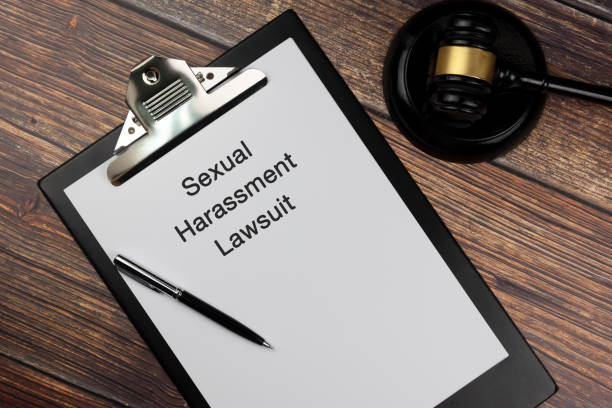
Compensation Finally Increasing, this has been highlighted in two sexual harassment cases – in Queensland and Victoria – have raised the bar for the amount of compensation a complainant can reasonably expect to receive for a substantiated claim of sexual harassment and discrimination.
Case In Queensland
In Golding v Sippel and The Laundry Chute Pty Ltd,[1] the Queensland Industrial Relations Commission ordered that the Respondents pay to the Complainant $15,960.75 for economic loss (subject to appropriate taxation), $30,000 for general damages and $5,000 for aggravated damages. The Complainant appealed this decision to the Industrial Court of Queensland, which set aside the award of $15,960.75 for economic loss and substituted the economic loss for the amount of $28,702.60 and set aside both the award of $30,000 for general damages and the award of $5,000 for aggravated damages, substituting both the general damages and aggravated damages the sum of $130,000.
Thus, the Industrial Court of Queensland has boosted a “manifestly inadequate” payout of $50,960.75 to $158,702.60, demonstrating a massive rise in compensation for claims of sexual harassment and discrimination.
In this particular case, the employer would stick his hand down the employees pants whilst using her hand to masturbate himself. The employer then denied the employee shifts and forced her to leave after she refused to have sex with him. Whilst the Industrial Court of Queensland considered this level of sexual harassment “extremely serious”, this should not deter any employee coming forward and claiming damages or compensation for milder incidences of sexual harassment.
The courts reasoning for awarding this amount of compensation factored in the “intangible affects” and “detrimental impact on [the employee’s] quality and enjoyment of life”. Although her medical condition and diagnosed psychological injury as a result of her treatment were “not of the highest levels of severity”, the employee’s personal resilience was identified as having aided her in avoiding or resisting many of the harsher effects which may arise from being subject to such unlawful conduct.
VIC Sexual Harassment Case in Victoria
In Victoria, the Victorian Civil and Administrative Tribunal (VCAT) has ordered a restaurant manager accused of drugging and raping a bartender employee, pay compensation in the form of damages, amounting to $150,000.
The employee had initially sought to sue both the restaurant (the employer) and the manager in VCAT, but she reached an out-of-court settlement with the restaurant. Thus, VCAT delivered a decision describing the unlawful conduct as “grievous sexual abuse” which was substantiated by the witness statements of the bartender employee, her friends and other employees of the restaurant. These statements provided a “credible and near contemporaneous corroboration” of the bartender employees account of events. Furthermore, the bartender employee demonstrated to the Tribunal that she now suffers from post-traumatic stress disorder, with chronic distress, entrenched anger, anxiety and lowered self-esteem, all as a consequence of the unlawful sexual harassment she had endured.

How does the law define Sexual Harassment?
Despite these case examples demonstrating unlawful conduct that is very obviously sexual harassment, some employees may not even know what constitutes sexual harassment or whether the conduct they are subjected to, satisfied the definition under the legislation.
At both the federal and state level, sexual harassment is unwanted or unwelcome sexual advances, requests for sexual favor’s or conduct of a sexual nature in circumstances which a reasonable person, having regard to all the circumstances, would have anticipated this behaviour to cause offense, humiliation or intimidation. This means the conduct may not be directed towards you specifically, but if you find the conduct to be offensive or intimidating, it may still constitute sexual harassment.
his includes unwelcome touching, hugging or kissing, staring or leering, suggestive comments, jokes or innuendos, unwanted invitations to go out on dates or requests for sex, intrusive questions about an employee’s private life or body, sexually explicit emails or SMS messages etc.
The law does distinguish sexual harassment from flirtation, attraction or friendship which is invited, mutual, consensual or reciprocated. However, if this consent is withdrawn or no longer invited and mutual, such as one employee wanted the relationship to end and the other party does not agree, this may constitute sexual harassment.
How are employers liable?
In any event, employers may be vicariously liable for sexual harassment on behalf of their employees, unless they have taken all reasonable steps to prevent sexual harassment taking place. In order to prevent sexual harassment, an employer should have a sexual harassment policy, implement it and monitor its effectiveness. This may include conducting training, modules or seminars on sexual harassment in order to educate employees on the policies and procedures. These policies and procedures should be reviewed on a regular basis to ensure they are compliant with the requirements under state and federal law.
The Company should also have internal complaint procedures to help resolve complaints of sexual harassment promptly, fairly and effectively. Even if the Company is a small business without a proper HR department, they should still make employees feel welcome to complain and provide assistance and support for employees affected by sexual harassment.
If sexual harassment does unfortunately occur, then the employer must take appropriate remedial action in response and resolve the incident, regardless of their size. An employee should feel safe at work at all times and an employer should ensure they are dealing with these complaints adequately in order to avoid being liable.

What can I do if I am being sexually harassed?
If you feel that you have been sexually harassed in your workplace, there are a number of things you can do. Firstly, you can tell the employee who is sexually harassing to stop and that you are uncomfortable. Sometimes, this is enough to make the conduct stop and for the employee to realize their actions are unwelcome. If you have told the employee to stop, but the behaviour continues, report the behaviour to Company management.
If you have exhausted all internal mechanisms and the sexual harassment continued and your employer has not responded in a way which makes you feel safe and protected, you can lodge a sexual harassment complaint in your respective state jurisdiction. Each Australian state and territory has their own anti-discrimination commissions, boards or tribunals which are governed by their state anti-discrimination laws. These jurisdictions provide a platform for employees to lodge claims against their employers for contravening state-specific anti-discrimination laws.
If you need advice or assistance in lodging a sexual harassment or discrimination complaint in your respective state, please give us at A Whole New Approach P/L a call, or if you just want to talk about your circumstances on 1800 333 666 for a free and confidential discussion.













